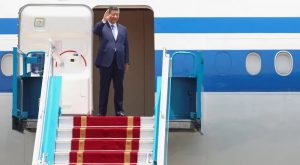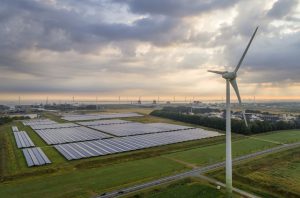China is setting up an AI-based intelligence platform to monitor the work of leading scientists and researchers around the world in key areas of science and technology.
The state-funded platform called ‘Supermind’, at the International Science and Technology Information Center at the southern technology hub Shenzhen, aims to be a database of experts in technologies with the capacity to change the world such as artificial intelligence, quantum computing and semiconductors.
ALSO SEE: China’s Congress Seen Targeting Economic Stability, 5% Growth
The platform, backed with funding of about $280 million mainly from Shenzhen, aims to be a repository that will hold tens of millions of research papers and patents, plus details on global scholars or “talents” so their work can be scrutinized – and these experts recruited, if possible.
It will also hold information from the world’s top science and tech databases to support President Xi’s ambition to strengthen the country in science and technology.
Newsweek, which broke this report on Thursday, quoted a source who said the site aims to “hoover up breakthrough technologies” for China’s industry and the military.
The platform’s key areas of interest are: quantum physics, blockchain computing, space technology, cells and genes, synthetic biology, brain science and brain-like intelligence, deep earth and deep sea, plus visible optical communications and computing.
Race to develop ground-breaking tech
Geopolitical analysts and tech experts have claimed that the country which wins the race to create and dominate the development of ground-breaking technologies, like AI, chips or quantum, could end up leading the world or claiming a pivotal position in the global balance of power.
China may be striving to achieve global tech supremacy, but it is, in fact, just one of many countries now using or seeking to use AI tools to gather potentially valuable data from all over the world.
The US is working on a similar project, according to Science Times, which said the Central Intelligence Agency was part of efforts to access more open-source data.
China has been using artificial intelligence to support a range of projects in recent years to improve transport management, traffic control, urban governance, public service administration and internet content screening.
In July 2022 an AI institute in Hefei, in Anhui province, even claimed to have developed “mind-reading” software that could boost surveillance of its citizens by gauging the loyalty of Communist Party members via facial recognition.
Not surprisingly, perhaps, that supposed breakthrough sparked a public outcry, and complaints that the Communist Party was using technological advances to serve its own political interests.
Researchers later said these developments were helping to bolster autocratic power.
- Jim Pollard
ALSO SEE:
China Asks Local Governments Not to Use Tech Funds to Pay Debt
US Accuses More Chinese Tech Firms of ‘Helping Beijing’s Military’
China ‘Strongly Dissatisfied’ at US Ban on Tech Investment
Chinese Tech Giants Rush to Buy Nvidia’s Top AI Chips – FT
Banned Nvidia Chips Available in China’s Underground Markets
US Chip Sanctions Have Hardly Impacted China’s AI Capability
US Backers Like Intel, Qualcomm ‘Poured Billions’ Into China AI
Chinese Supercomputer Achieves ‘Brain-Scale’ AI Model – SCMP
























